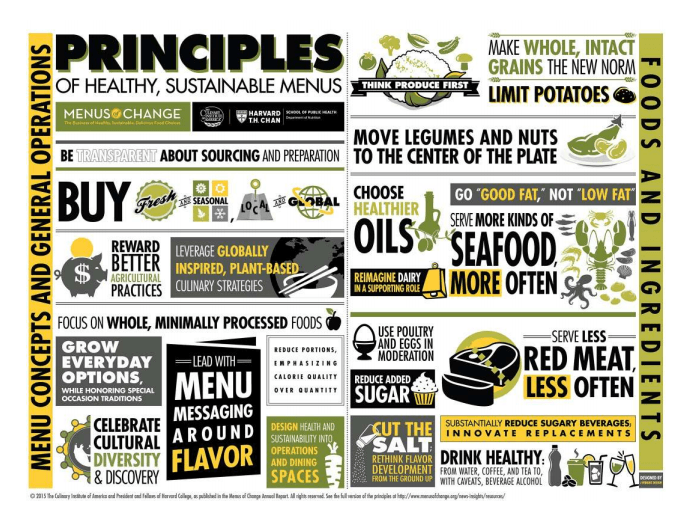
By Kristie Middleton
The obesity epidemic. Chronic disease. The skyrocketing global population. These things individually present unique and urgent challenges. Together, they create a crisis. While humane, environmental and hunger-relief organizations are seeking ways to feed the ballooning population that is expected to reach 9 billion by 2050, health organizations are scrambling to curb obesity and stymie heart disease. An abundance of research supports the notion that one of the easiest and most powerful interventions to address all of these challenges is a plant-based diet.
Because of these and other reasons, people are more frequently choosing healthy, meat-free food options that are better for us, the environment and the animals raised for our food system. There’s a correlating shift by chefs and restaurateurs to move vegetables to the center of the plate in addition to a wave of new food companies that aim to disrupt animal agribusiness through more sustainable plant-based food options.
Menus of Change is an annual conference assembled by the Culinary Institute of America and the Harvard School of Public Health, and is attended by chefs, public health experts and representatives from some of the world’s biggest food companies. The conference emphasizes the importance of reducing animal products and getting more plant-based foods on Americans’ plates. Backed by Dr. Walter Willet, chairman of Harvard’s Nutrition Department, the conference’s Principles of Healthy, Sustainable Menus recommend moving nuts and legumes to the center of the plate and leveraging globally-inspired plant-based recipes and meal offerings to create healthy, sustainable menus.
Chefs and foodservice providers are responding to this rally cry with a host of novel approaches. University of California, Berkeley students enjoy plant-forward meals at Brown’s - A California Café. At this campus favorite, guests can choose the less-meat “Flipped Plate,” with seasonal plant choices like brown rice, caramelized onion and parsley pilaf, roasted broccoli with cumin and house-made hummus with paprika pita chips and an entrée — including plant-based options like root vegetable gratin and grilled portabella mushroom caps, or a plant-strong sampler plate featuring all-vegetable options as the stars of the dish.
Compass Group, the world’s largest foodservice company, has created an all-vegan dining concept called ‘Rooted ... in Good Taste,’ which emphasizes wholesome fare, including comfort foods and international flavors that appeal to all diners. “Customers are selecting more vegetarian-style entrées and snacks than ever before, and Compass Group is making it easy for guests to find vegetable-based options,” writes Food Management.
Others are cutting meat with mushrooms as a way to harness the fungi’s savory umami flavor and moisture, while reducing the intake of saturated fat and cholesterol as promoted by the Mushroom Council’s “Blendability” campaign.
Consumers are latching on and the meat industry is taking note. Meat industry trade journal Meatingplace wrote: “The Protein and the Plate research project … showed 70 percent of meat eaters substituting a non-meat protein in a meal at least once a week and 22 percent saying they are doing it more often than a year ago.” The journal pointed to the increased interest of investors in plant-based food options and large packaged food companies acquiring and developing meat-free products to meet the growing demand, including General Mills, Kellogg, Kraft and Pinnacle Foods.
Other companies like Hampton Creek, Impossible Foods and Beyond Meat are re-creating traditional foods without the animal ingredients for products that are better for our health, the planet and animal welfare.
Perhaps the easiest — and tastiest — way to improve our diet is by practicing the Three Rs: "reducing" or "replacing" consumption of animal products, and "refining" our diets by choosing products from sources using higher animal welfare standards.
These strategies represent unique approaches to solving some of the world’s most severe problems one bite at a time. The food industry is wise to latch onto these approaches for a brighter future — a Food 2.0.
Kristie Middleton is the senior director of food policy for The Humane Society of the United States.
TriplePundit has published articles from over 1000 contributors. If you'd like to be a guest author, please get in touch!














